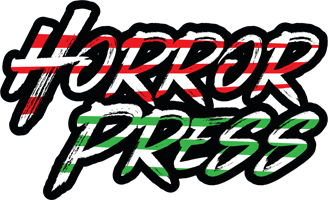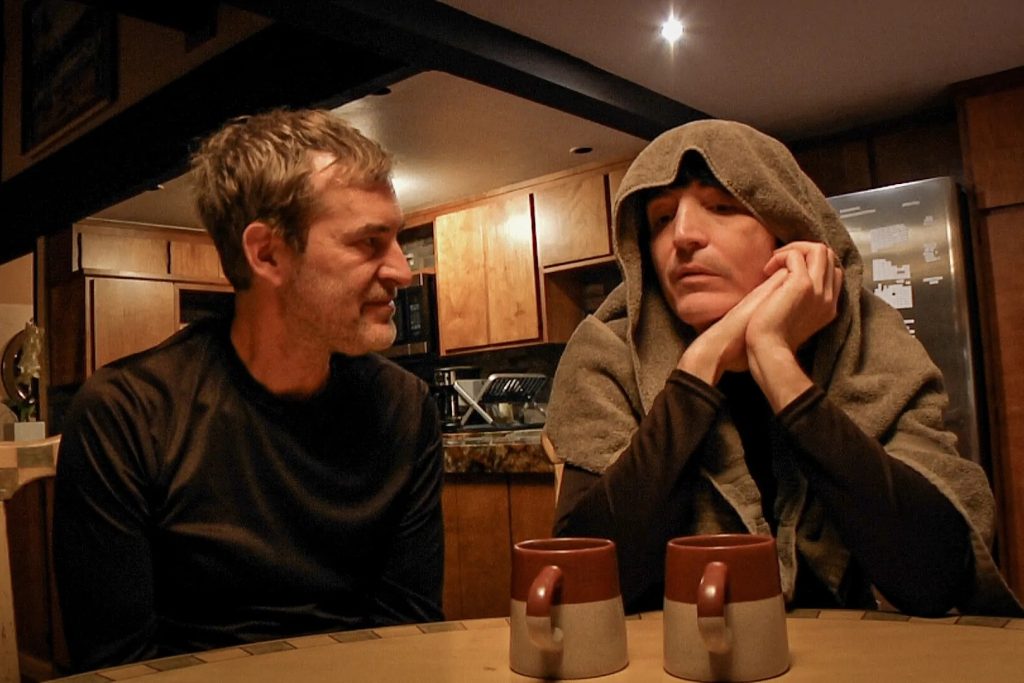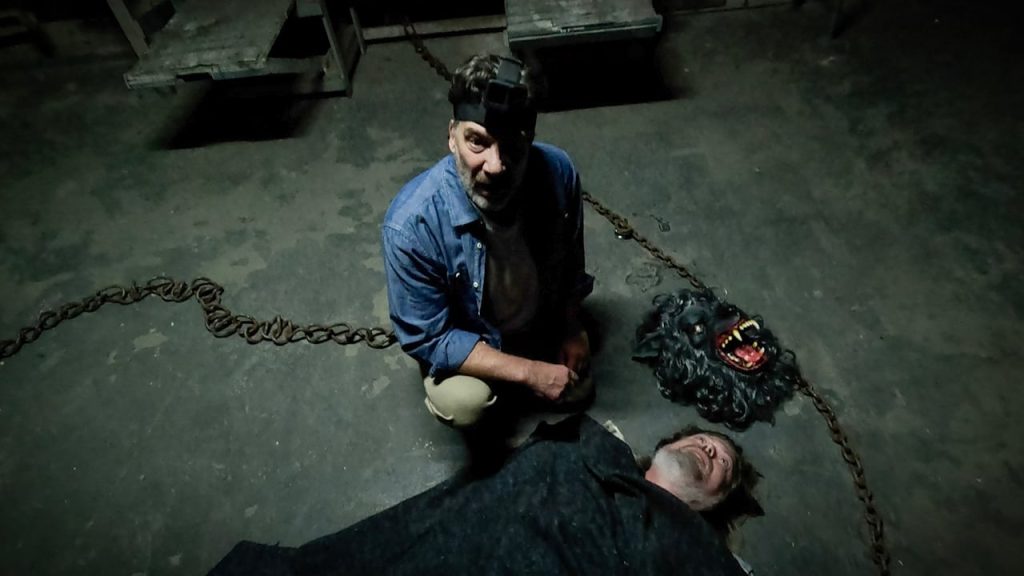TV
‘Hell Motel’ Season Finale Explained
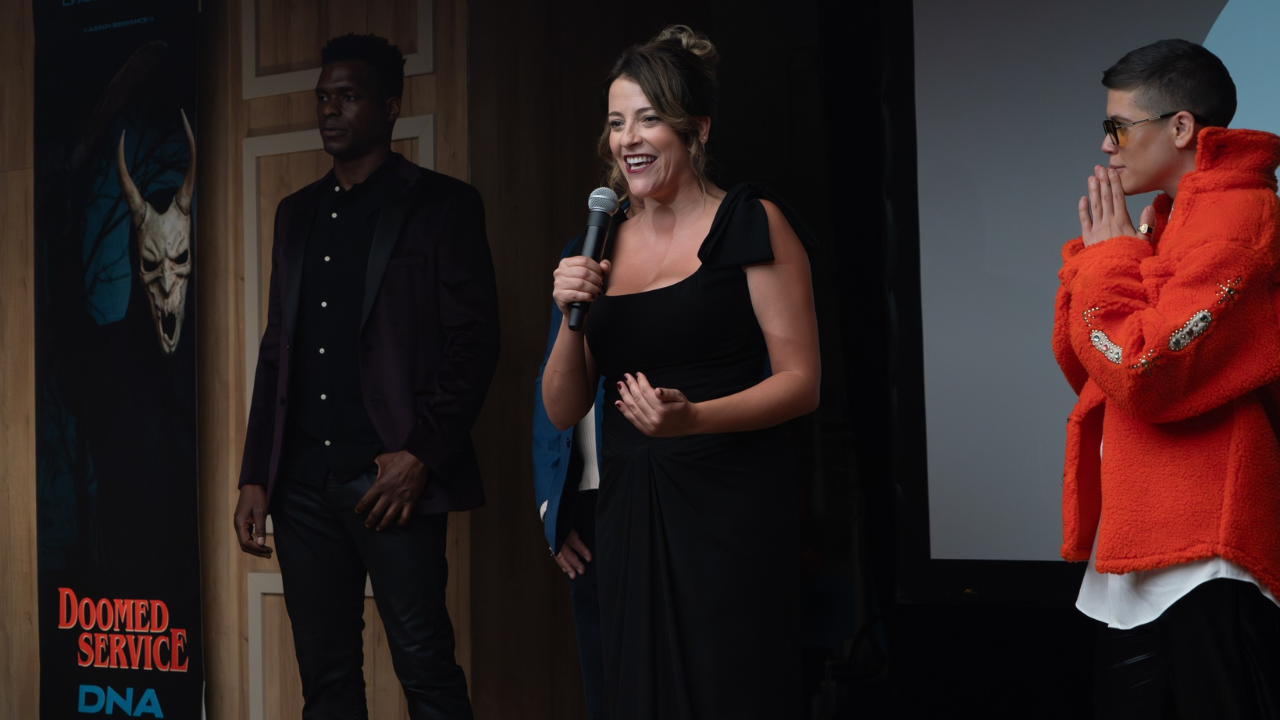
We had a damn great time during our stay at Hell Motel this summer. However, they recently asked us to check out when the season finale dropped. The episode, ‘Grand Guignol,’ delivered a few more shocking surprises. It also packed quite a few meta moments and easter eggs for Slasher fans who followed this crew to the Cold River Motel. With so much going on, many people are still confused about whether Paige (Paula Brancati) or Andy (Jim Watson) was our bonus Baphomet.
As Horror Press’ resident Hell Motel Lady, and nerd with too much time on her hands, I’m here to break down the season finale. If you’ve seen it, continue reading to learn how I reached my conclusion. If you haven’t seen the finale yet, then save this for later because I’m packing spoilers.
The ‘Grand Guignol’ Recap
The episode, written by Hell Motel co-creators Ian Carpenter and Aaron Martin, spends a lot of time playing with the audience. Right up until the very end, they allow viewers the chance to doubt themselves. They also gift us various lines that could mean a couple of different things. The season finale catches up with Paige and Andy after the events of the most recent Cold River Motel massacre. As the only two survivors, they both have some shared trauma, but have drifted apart.
Paige has found herself back in the Doomed Service franchise playing Caitlyn Ridgeley (Lauren Lee Smith) again. This time, she’s leading a new requel that will kickstart a trilogy. To make things even better, her director, Aaron Berrance (Breton Lalama), seems receptive to her having more input in the films. Meanwhile, Andy is teaching at a college where the students don’t want his lectures on comedy. They want him to talk about horror and how he survived a fairly recent murder spree.
After a particularly grueling day of students trying our suspect, er, professor, he heads over to Paige’s place for dinner. She is finally returning a text he sent while she was filming. She wants to make him a meal and invite him to a special early screening of the newest Doomed Service movie. We also get a peek at Paige’s gorgeous apartment filled with Doomed Service merch. This sheds light on just how much this franchise means to her and forces the audience to wonder what lengths she would have gone to for a chance to return to the franchise.
No One Gets Out of this Season Alive
This also strikes Andy as odd. He finally brings up that he found Portia’s heart in Paige’s ceiling at the motel. Paige pins that on Floyd (Gray Powell) and Shirley (Yanna McIntosh) and asks why Andy didn’t take his suspicions about the heart in her room to the police. He claims he didn’t know what to think but knew he had to protect her. Obviously, the heart business and wine results in them moving the conversation to the bedroom. Afterwards, Andy asks Paige about this new Doomed Service entry and admits he has seen all of the movies. Paige tells him that this one gives Caitlyn a daughter, and Andy points out that the real Caitlyn didn’t have a daughter. This is when my wig was snatched, and I realized Andy was the third killer the whole time. However, the writers were not done toying with us yet.
Andy and Paige go on this date to Doomed Service, and clearly, things get stabby. After Paige is humiliated by finding out they killed her character off after she told the crowd she would be around for a trilogy, all hell breaks loose. The audience is confused by Caitlyn’s crime scene photos, which interrupt their supernatural slasher film inspired by Caitlyn’s murder. Aaron asks where the projection booth is, and Andy gives him directions before allegedly going to find the light switch. So, it’s suspicious he knows his way around the theater, but the lights do not come on. However, Aaron is wearing his guts on the outside after meeting a mysterious figure in a hallway. Coincidence?
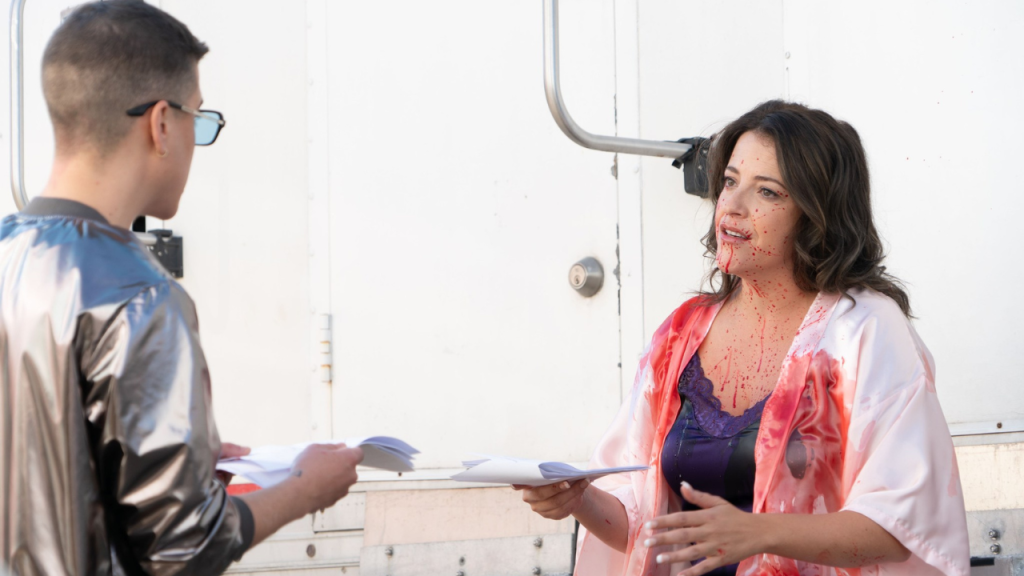
A Bloody Ending
We all have to be looking at Andy differently, but it wouldn’t be as fun if he just owned his shit and confessed. Instead, he tries to blame Paige for killing Aaron and the Hell Motel Squad (trademark pending). This is when Paige starts asking the serious questions, and we find out Andy loved Caitlyn. Andy tells her what a great woman the real Caitlyn was and shares his thoughts on the reductive character Paige has turned her into. Things get heated, and Andy moves too quickly toward Paige, so she instinctively runs him through with the weapon Aaron pulled out of his guts and left nearby. As Andy bleeds out, Paige apologizes for her part in the films and tells him she never considered how people who knew Caitlyn might feel about them.
It seems like Andy is accepting her apology as he dies on the floor. However, the police kick in, and he starts screaming that Paige is trying to kill him. In the confusion, Paige stands up with the machete and asks him to tell the truth. The cops shoot her in her glorious eveningwear, and she falls down next to Andy. His spiteful ass thought he would have the last word, but Paige tells him she will see him in hell. This is when the Hell Motel season finale really earned the episode title, ‘Grand Guignol’.
A Professor and a Killer
Andy was the extra Bathomet running around this season of Hell Motel. The revelation that Caitlyn is his mother explains Andy’s views on the genre and his reactions to certain conversations this season. This development sheds a new light on his instant bond with Paige. It also explains why he felt he had to protect her instead of telling people she had a heart in her ceiling when they were rescued in the previous episode. He didn’t allow her to live just because she seemingly felt bad for her role in sensationalizing a murder. He spared her because she’s a mother figure of sorts.
I’m not going to walk us through Psych 101, but Andy becoming a murderer makes too much sense. Andy’s motives for this killing spree add so many layers to everything he said and did this season. All of his scenes carry more weight because we assumed we knew Andy’s intentions. However, we never even scratched the surface.
One example is when Aaron is telling Paige that she’s no longer valuable to the Doomed Service franchise. Andy is not just feeling bad for his co-survivor and possible new girlfriend. He is also hearing that his murdered mother is no longer relevant to these movies that have been profiting from his pain for most of his life. Knowing the real reason he is pissed at this moment made me recall the times Andy froze when looking at Floyd as Baphomet. Our little murderous professor was facing his mother’s murderer, and that was making things a bit too real. So, he was being put through a lot this season while trying to take a stab at the genre he has beef with.
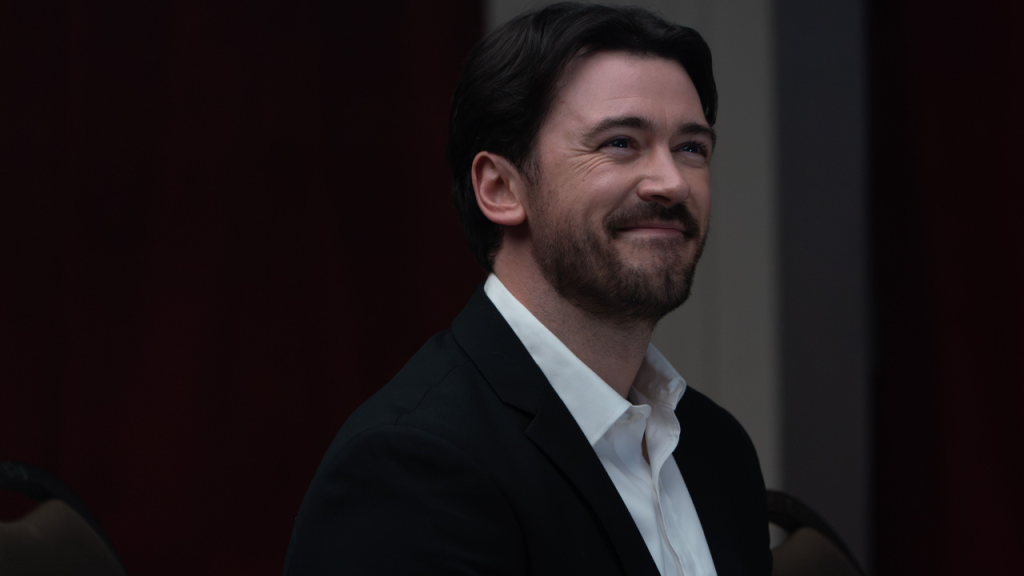
Why Andy Being the Killer Works
There was one point of view that Hell Motel was missing this entire season. In a season that holds a mirror up to true crime media, creators, and connoisseurs, it felt odd not to hear from a victim’s loved ones. I thought Paige was Caitlyn’s daughter, but that would have taken away from her arc dovetailing with Caitlyn’s story. So, having Andy be the son of the victim is a very smooth fix. After all, he grew up watching his trauma become profitable as his mom’s humanity was forgotten.
Andy being the murderer, not only snags a Psycho nod, but it also gives us insight into how this killer was made. It’s not fun being constantly reminded of a loved one’s murder. More importantly, watching the media spin your pain for clicks and headlines triggers a special kind of rage. Hell Motel would have felt incomplete (for tons of reasons) without Caitlyn’s angry offspring.
To add another insult to all of the strays Andy caught this season, his mother’s killers were never caught. People harassed his dad into an early grave (to be fair, it is usually the husband). However, it became a cold case, leaving Andy without anyone to direct his grief and rage at. At least until he came face to face with the murderers and watched Paige deal with them in the previous episode, ‘Cat and Mouse’. He might have started his Hell Motel journey as a simple mission killing spree. However, our sweater king was also thrown a couple of surprises.
The Last Page on Paige
Most viewers blamed Paige all season (and I am guilty of that too). That would have put too much on our final girl’s plate though. She was here as a commentary on how the industry treats women of a certain age. Andy’s confusing Mom Goggles, and her weird attachment to this character aside, Paige’s ending dovetails beautifully with Caitlyn’s. When Aaron tells Paige that they used her to bring the old fans back to the franchise. The reasoning is that they have a new young actor, Paula Lynde (Raíssa Souto). She will keep the old audience and pull in a younger crowd. Aaron is saying the tragedy that started it all, and the woman who played the infamous victim, are no longer relevant. While she might be “too hot to die,” she’s not too hot to be shoved out to pasture for a new model.
The actor (and the victim that her character was inspired by) are no longer trendy. There are so many fun threads to pull at this season of Hell Motel. However, this idea of what we as a society make popular and how quickly we discard it is what stands out to me. Not all true crime podcasters, authors, fans, etc. are ghouls. Yet, the genre does seem to be built on sensationalizing horrific events. So, it’s not lost on me that the final scene of the episode is an actor auditioning to play Paige in a movie about this bloody night.
Is This About Us?
This season holds a mirror up to all of us, including horror fans who like to pretend some of our favorite films do not have real-world ties. It’s asking us to sit with that for a moment and think about how we got here as a species. Sure, it is easy to get lost in the snowblowed frat boys and skinless cooks at this murder buffet. However, the show is also an examination of our own relationship to the media we consume. After all, it is easy to become desensitized after living such unprecedented lives.
Hell Motel gave us plenty to chew on (even though Eric McCormack’s Chef Hemingway died before breakfast). I’m thinking about the lifespan of a trend in this era, where none of us can focus on anything for longer than a few seconds. What becomes of the surviving family members when the rest of the world decides they are ready to close the book on their life-changing tragedy? When the memes die down, and the media thinks their stories no longer bleed enough to lead anymore, what then? I don’t know what to do with all these thoughts yet. However, each of us might want to unpack these ideas as we consume so much information via social media.
That’s All I Know About That
I do not have answers to the questions the season poses. I don’t have an eloquent statement to end this article with or a list of actionable items. What I do know is that Andy was literally cutting up at the Cold River Motel, and that Paige got to be a real final girl for a few moments. I also know I had a damn good time being Horror Press’ Hell Motel Lady this season. Fingers crossed I get to whip that self-made title out again soon!
TV
The Best Moments From Each Season of ‘Stranger Things’
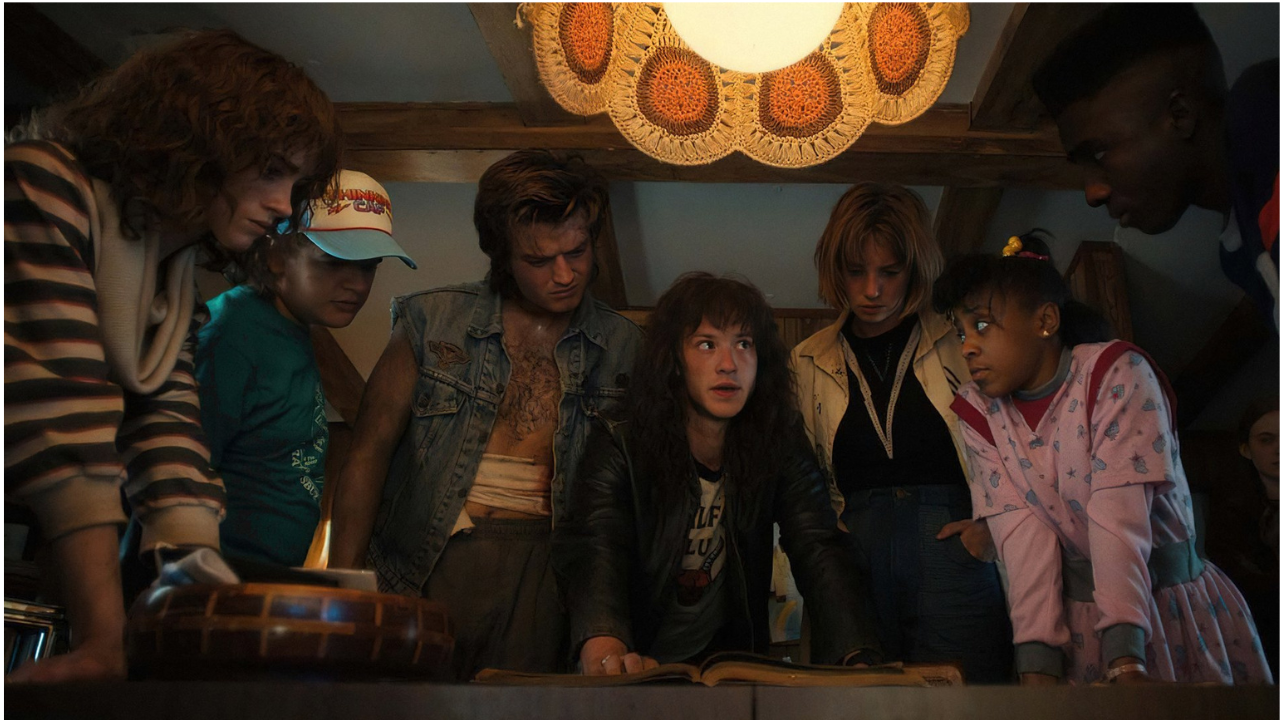
Now that we are heading into the last season of Stranger Things, it is hard to not remember the good times. Much like any goodbye, it feels too soon and is giving us a case of the nostalgia glasses. We all know that not all seasons were created equally. Yet, the wildly popular series managed to keep enough of us invested these last 10 years. It is an undeniable pop culture sensation that will not be forgotten anytime soon. It is also honestly one of the few shows that makes it hard to break up with Netflix. So, I decided to look back and highlight the best parts of each season. Grab a “Justice for Barb” t-shirt and take this walk down memory lane with me.
Our Favorite Moments From Stranger Things
Season 1: Eleven
Season one of Stranger Things brought us many memorable moments that reshaped pop culture. Joyce Byers’ (Winona Ryder) makeshift Ouija board on the wall, used to communicate with her missing son, was a major one. However, this was also the only season that allowed Eleven (Millie Bobby Brown) to be a badass. Which is why she is the best part of Stranger Things’ first season. Watching her showcase her powers as she sought out waffles was a mood. A relatable queen if there was one, right? From using her telekinetic powers to stop annoying diner fans to flipping vans chasing after her and the crew, this season set Eleven up to be a powerful badass. That is even before we get into her mind tricks, which we still have some questions about. Sadly, subsequent seasons have yet to follow through on the promise this one gave us. I could write a whole series about how Eleven is a reservoir of untapped potential in the next three seasons.
Season 2: Steve and Dustin
I think Max (Sadie Sink) is one of the best additions to the show, and I felt Bob (Sean Astin) deserved a better arc. However, only one arc warms my cold little heart when I think about this second season. Few things bring as much joy to Stranger Things fans as the unshakable bond between Steve and Dustin. Season 2 is where this unlikely duo found each other, and that is why they are the best part of this season for me. Steve (Joe Keery) and Dustin (Gaten Matarazzo) bring out the best in each other. Interestingly enough, the actors seem to have also found themselves formidable scene partners. Whether Dustin is bringing Steve up to speed or Steve is giving Dustin tips on how to handle girls, these two stole our hearts at multiple points this season. My personal favorite is when Steve steps in to save Lucas from Billy the Racist, and Dustin cheers him on (while he has the upper hand). Dare I say, this relationship has become the heart of the show.
Season 3: Robin Coming Out to Steve
This season of Stranger Things introduced quite a few new characters to kill, like all the other seasons. However, Robin (Maya Hawke) seemed cooler than most, and we were silently rooting for her to make it. While her easy dynamic with Steve made us worry that she would become another part of the Steve, Nancy, and Jonathan saga, we had nothing to worry about. When Steve professed his feelings to Robin, she surprised us all and came out. This led to Steve surprising us by picking up a more age-appropriate best friend in what is one of the sweetest moments of the show. Aside from becoming Steve’s platonic girlfriend, Robin also went on to become the first openly gay character in the ridiculously large main cast. So, while this season isn’t my favorite, I’m very grateful it brought us this scene and this pairing.
Season 4: Eddie Munson Meets Erica Sinclair
Eddie Munson (Joseph Quinn) is probably part of everyone’s favorite moments from the fourth season of Stranger Things. While many people will probably cite his cafeteria entrance, his moment in the woods with Chrissy (Grace Van Dien), or the infamous “Chrissy, wake up,” those aren’t my favorite moments. Because this show taught us that Quinn is a scene thief, and he turned this season’s throwaway character into a pop culture moment, there is plenty to choose from. However, my nerdy ass’s favorite scene is when my two favorites faced off in Dungeons & Dragons.
Resident scene thief Erica (Priah Ferguson) finally found someone who could keep up with her when she showed up to this game. Watching her and Eddie match wits before getting down to an epic game of DnD that spawned numerous fan theories about how Eddie could come back for season 5 is priceless. He forced Dustin and Steve’s duo to become a trio, played Metallica’s Master of Puppets in The Upsidedown, and broke our hearts with his death. However, I choose to remember him alive and becoming begrudgingly impressed with the little girl who takes no prisoners. I would have watched them play this game for hours and lived my best nerdy life.
We’re Looking Forward to Season 5 of Stranger Things
So, those are my fondest memories from each season of Stranger Things. Feel free to let us know your favorite moments and your predictions for the fifth and final season on social media!
The first four episodes of Stranger Things: Season 5 hit Netflix on Wednesday, November 26. Let us know if you plan to watch as they air. Or if you are going to wait until the end of the year to binge the whole season.
TV
Brooklyn Horror Film Festival 2025: The Creep Tapes Season 2
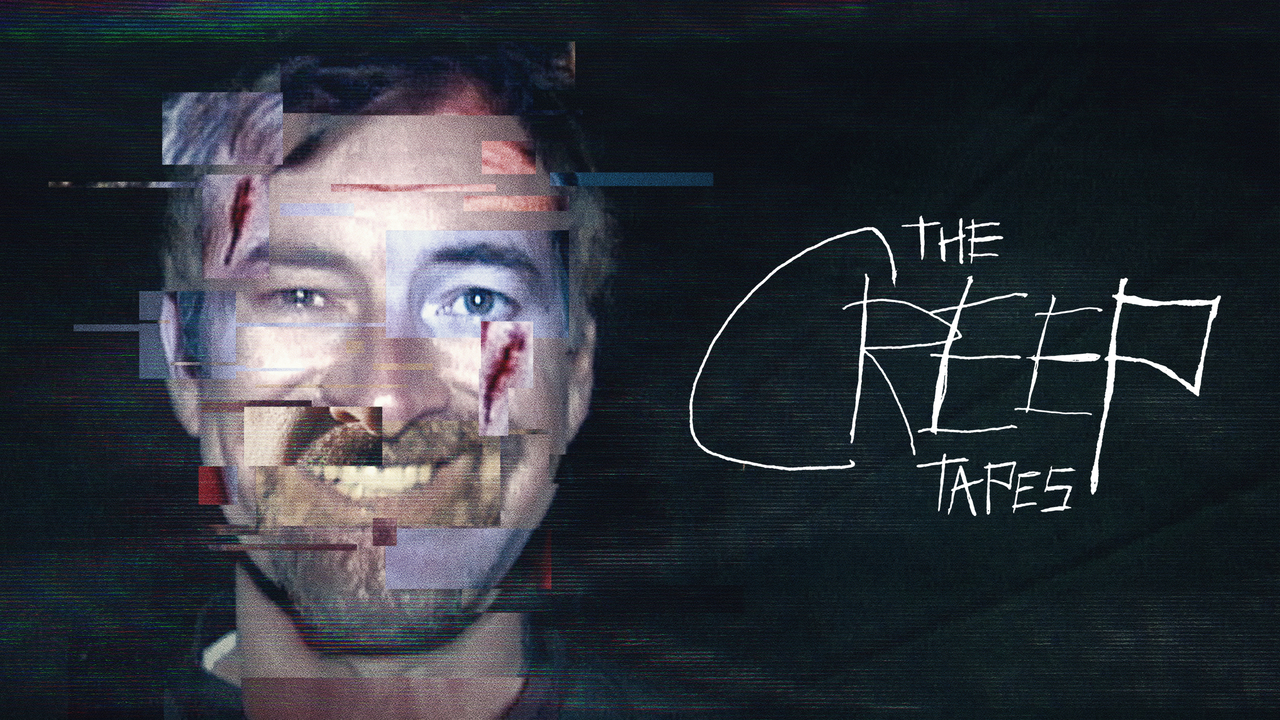
In 2014, Mark Duplass and Patrick Brice created magic with their mumblegore-adjacent found footage epic Creep. Three years later, this dreamy duo brought us the second installment of their creepy killer. Seven years would pass until Josef (Mark Duplass) would creep back into our daily lives with six truly terrifying episodes of The Creep Tapes. It would only be a short time until a second season of The Creep Tapes was announced…and even less time for a third season! The best experience I had at the Brooklyn Horror Film Festival was seeing the first three episodes of The Creep Tapes Season 2.
The Creep Tapes Season 2 Creeps Back Into the Spotlight
The Creep Tapes Season 1 was fairly straightforward throughout. It was a fantastic season (that I loved), but the majority of it was more of the same. Josef finds a victim (through various means), plays nice (and weird), goes after victim, and death. The season finale, “Mom (and Albert)”, was the first time we really got some (what seems to be) true background into Josef. From personal conversations, that episode was hit or miss. (I loved it, the dude hung dong!)
Upon hearing the news of Seasons 2 and 3, I was left wondering, will we get more background, OR will it just dive into Josef’s maniacal madness? While the first three episodes of Season 2 don’t do much to give us too much information about Josef’s background, it does up the ante considerably. Season 2 makes clear that Mark Duplass and Patrick Brice have grandiose ideas that they’re only scratching the surface of.
The Creep Tapes: S2 E1 “Joseph”
Imitation is the sincerest form of flattery, but what happens when the imitation is just… wrong? Josef finds himself in the sights of Joseph (David Dastmalchian), who is looking for a videographer to film a video for his unborn son, as Joseph has been diagnosed with cancer. Sound familiar?
How can someone possibly replicate the insane scenario Josef concocted in Creep? It can’t just be a coincidence—and it’s not. We come to learn that Josef has been doing something with his tapes (and films) that allows Joseph to view his work. Unfortunately for Joseph, the wrong man answered his ad.
This piece of information is crucial for understanding who (and what) Josef is. At points, he seems mentally ill, misguided, a man who just gets too damn lucky sometimes. The information gleaned reveals a much more careless, while still sophisticated, man who believes he’s creating art (of sorts). What’s the purpose of creating chaos in the modern age of technology if you can’t share it with other degenerates?
The “flip of the script” in Season 2 Episode 1 “Joseph” is a heart-racing 20-ish minutes of anticipation. I didn’t separate my butt from the edge of my seat until the credits rolled. But it’s with the casting of Joseph that the true magic of the Season 2 premiere excels. Who else can outmaniac a maniac? Of course, it has to be David Dastmalchian.
The Creep Tapes: S2 E2 “Mark”
Mark (Robert Longstreet) wakes up in a concrete room, his leg chained to the ground. A TV sits atop a table. An empty tub sits across the room. Someone lies still underneath a blanket, with a chain coming out of the bottom. And Josef accompanies Mark, leg chains and all. What could go wrong?
One of the most interesting things about Josef as a character is his ability to showcase his flaws, something that is extremely apparent in Season 2, Episodes 2 and 3. Nearly everything that can go wrong for Josef goes wrong. The reason it goes wrong is because of a simple oversight on Josef’s part. And it’s kind of heartening to see. Nearly every time we see Josef in action, he has a general grasp of his overall plan. He knows, more or less, how his targets will react, and his incredible improv skills allow him to course correct when necessary.
“Mark” just goes off the rails in ways Josef could never imagine.
Season 2, Episode 2 is Duplass and Brice’s nod at the Saw franchise. And, if anything other than a few laughs, solidifies the intense planning and expertise that goes into a John Kramer game. One simple oversight can cause a highly crafted plan to fall apart at the seams. To boot, “Mark” is one of the funniest pieces of horror media I have ever seen. It begs the question, what if an absolute dufus was put in a Saw film?
And don’t worry, bloodhounds, there’s gore aplenty!
The Creep Tapes: S2 E3 “Wes”
Wes (Diego Josef) finds himself taking a job to help Josef film a house-flipping show’s pilot episode. But night descends, and Wes realizes that they’re in the middle of nowhere. Wes’s attempted escape from Josef leads to an unfortunate run-in with law enforcement. Oh boy, how will he get out of this one?!
Even the greatest of franchises will bottom out at some point. Much of what we’ve seen Josef do involves a certain amount of suspension of disbelief. HOW is there not at least a Reddit thread about filmmakers/videographers who have gone missing after answering Craigslist ads? There is no way a 20/20 wouldn’t have been made about these killings if they were real. I mean, just look at how many tapes we see in the opening. Josef is talented at what he does, but everyone slips up eventually.
“Wes” brought me to a point where I was unable to suspend my disbelief. When AMERICAN police see someone moving a potentially dead body and don’t immediately cuff and detain them, you’re asking a bit too much. The crux of this episode revolves around a repeated word: “professionalism.” I get that it’s supposed to shine a light on how unprofessional the police are in this scenario, but it’s a step too far.
What I will say is that it’s a fun angle to take. We’re watching this killer that we’ve seen commit nearly 10 murders, and there are more we haven’t, interact face to face with the police. How will he get out of this sticky situation? I just don’t believe the way it is handled is grounded in a reality that would ever make sense. The chemistry between Wes and Josef, though, is some of the best in the entire franchise. They play off of each other incredibly well, and it makes you wish “Wes” were a feature-length film character instead of an episode character.
A Bold New Chapter for The Creep Tapes
Overall, the first three episodes of The Creep Tapes Season 2 were an overall blast. Even with the issues I had throughout “Wes”, I was entertained the entire time. “Joseph” and “Mark” are contenders for the best episodes of the entire series (and maybe even best entries in the entire franchise). I love seeing Mark Duplass and Patrick Brice spreading their wings to take Josef in different directions. They find ways to keep the product feeling original while still paying direct homage to horror properties beloved by the masses. If these are the first three episodes of Season 2, I think we’re in for a real treat with the final three.
The Creep Tapes Season 2 premieres November 14 on Shudder and AMC+.


